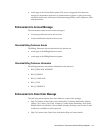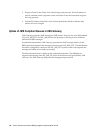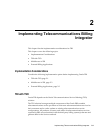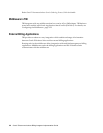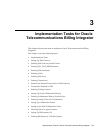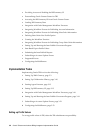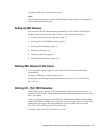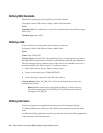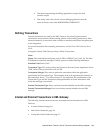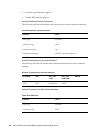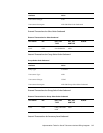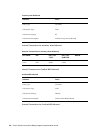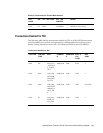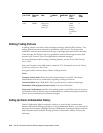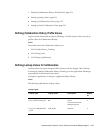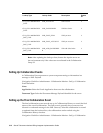Implementation Tasks for Oracle Telecommunications Billing Integrator 3-5
• The names representing the billing applications setup in the hub
must be unique.
• Hub entity code values for the various billing applications must be
same as the key value from BSR.SENDER.COMPONENT.
Defining Transactions
Internal transactions are used by the XML Gateway Execution Engine. Internal
transactions are associated with the trading partner in the trading partner setup. Each
internal transaction is associated with a number of external transactions that participate
in the integration.
For more information about defining transactions, see the Oracle XML Gateway User's
Guide.
Navigation: Oracle XML Gateway Setup > Define Transactions.
Notes
Queue: The standard inbound queue used in TBI is APPS.ECX_IN_OAG_IN. The field
is disabled for outbound messages. Default queues are defined during installation.
Standard Code: Select 'OAG'.
Transaction Type: This is the product short name for the base Oracle Application. Enter
'XNB', which is the product short code for TBI.
Transaction Subtype: This refers to particular transaction within the application
specified by the Transaction Type. The last letter of the code represents the direction of
the transaction, that is, "I" for inbound and "O" for outbound. The combination of the
Transaction Type and the Transaction Subtype identifies an Oracle transaction with
which the message is associated.
External Transaction Type: Enter a primary external identifier for the XML message.
External Transaction Subtype: Enter a secondary external identifier for the XML
message.
Internal and External Transactions in XML Gateway
The following internal transactions have associated external transactions in XML
Gateway:
• Account Outbound, page 3-6
• Sales Order Outbound, page 3-6
• Group Sales Order Outbound, page 3-7



